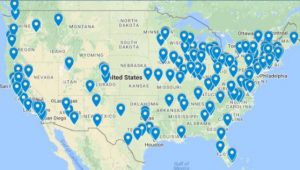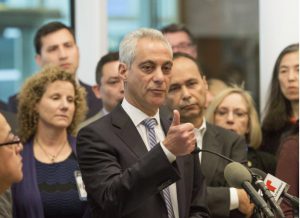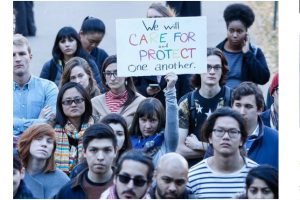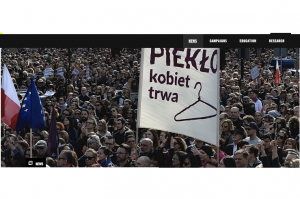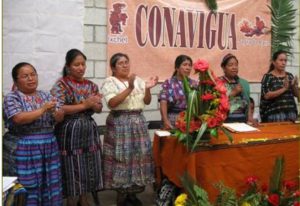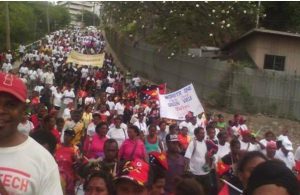…. HUMAN RIGHTS ….
An article by Nadia Prupis for Common Dreams (reprinted according to provisions of Creative Commons)
The “rhetoric of fascism” is on the rise in the U.S. and Europe, a United Nations official warned on Thursday, a disturbing trend that puts “unprecedented pressure” on human rights standards around the world.
“Anti-foreigner rhetoric full of unbridled vitriol and hatred is proliferating to a frightening degree, and is increasingly unchallenged,” said Zeid Ra’ad Al Hussein, the U.N. human rights chief. “The rhetoric of fascism is no longer confined to a secret underworld of fascists, meeting in ill-lit clubs or on the ‘Deep Net.’ It is becoming part of normal daily discourse.”
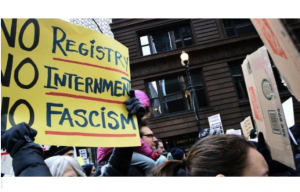
People protest in the wake of Donald Trump’s election. (Photo: Ben Alexander/flickr/cc)
(click on photo to enlarge>
Speaking ahead of International Human Rights Day on December 10, Zeid warned that “if the growing erosion of the carefully constructed system of human rights and rule of law continues to gather momentum, ultimately everyone will suffer.”
The failure of global leaders to deal with complex social issues like the massive wealth gap, discrimination, and climate change have led to growing numbers of people to turn to “the siren voices exploiting fears, sowing disinformation and division, and making alluring promises they cannot fulfill,” he said, in a nod to U.S. President-elect Donald Trump.
“Discrimination, yawning economic disparities, and the ruthless desire to gain or maintain power at any cost are the principal drivers of current political and human rights crises,” he said.
(Article continued in the right column)
What is the state of human rights in the world today?
(Article continued from the left column)
Zeid’s warning came just before far-right Dutch politician Geert Wilders—who is widely expected to win the upcoming March election for Prime Minister—was convicted of inciting discrimination for saying the Netherlands would be better off with fewer Moroccans.
During a municipal election campaign in the Hague in March 2014, Wilders, leader of the Party for Freedom, asked a crowd of people attending a rally if they wanted “more or fewer Moroccans in this city and in the Netherlands.” The crowd chanted back, “Fewer! Fewer!” Wilders, smiling at the reaction, responded, “We’re going to take care of that.”
Friday’s verdict indicated that Wilders had planned the comments as a stunt, with the judges finding evidence that his team had coached the crowd how to respond, and saying that it was intended to be insulting to Moroccans.
Although Wilders was convicted of inciting discrimination, he was acquitted of hate speech charges, and the panel rejected prosecutors’ requests to fine or jail him. As the BBC reports, the verdict will have little impact on Wilders’ political aspirations.
Zeid has previously named Wilders, among other high-profile politicians such as Trump and the U.K.’s Nigel Farage, as demagogues whose rhetoric is poised to bring about “colossal violence” against minorities. He has also said Trump was “dangerous” for the international community. Under Zeid’s leadership, the U.N. human rights office is readying to condemn Trump if he puts any of his xenophobic or discriminatory policies into effect.
On Thursday, Zeid urged all people to “push back the violence and hatred which threaten our world.”
“Human rights are for everyone, and everyone will be affected if we do not fight to preserve them,” he said. “They took decades of tireless effort by countless committed individuals to establish, but—as we have seen all too clearly in recent months—they are fragile. If we do not defend them, we will lose them.”
